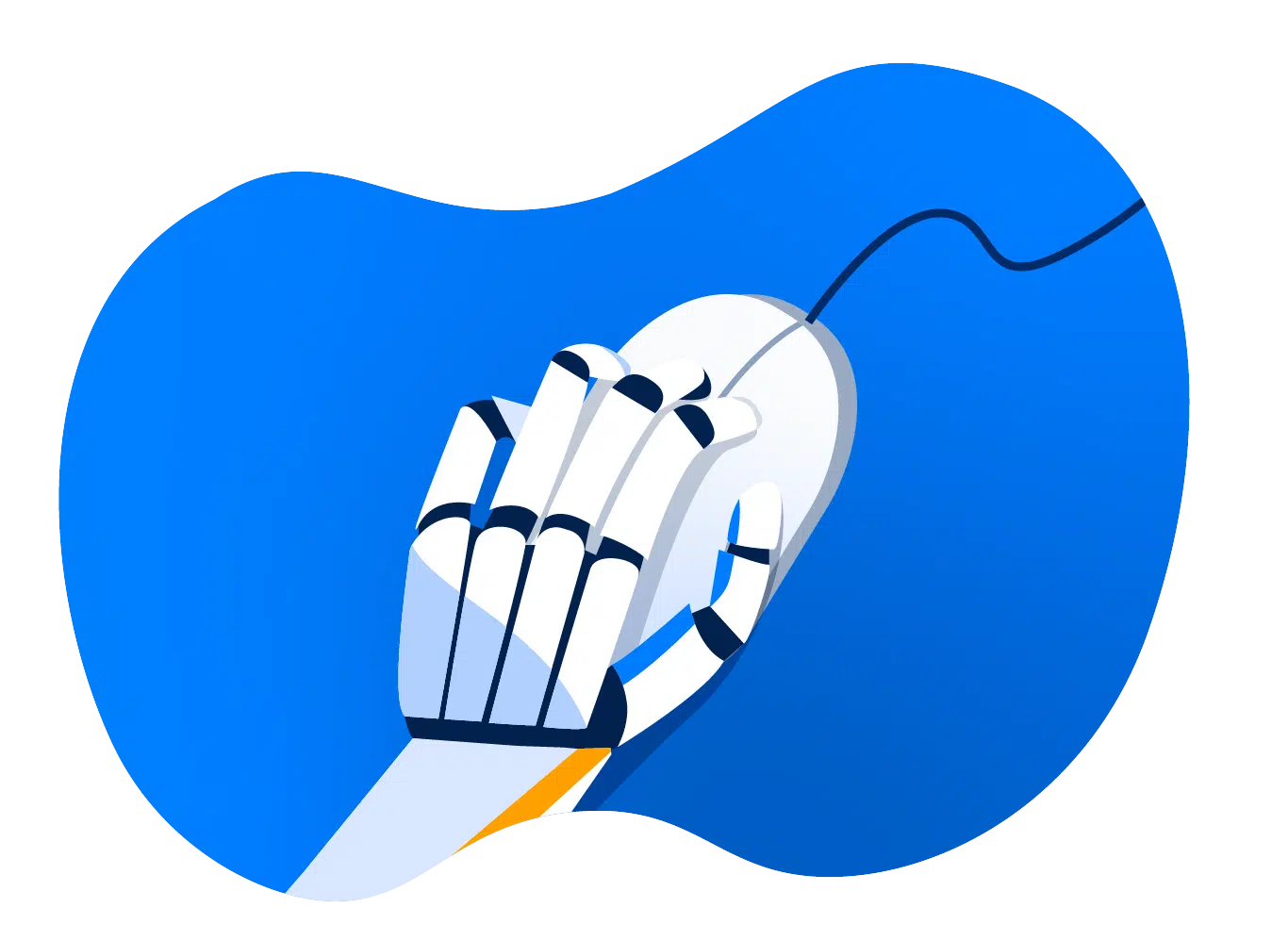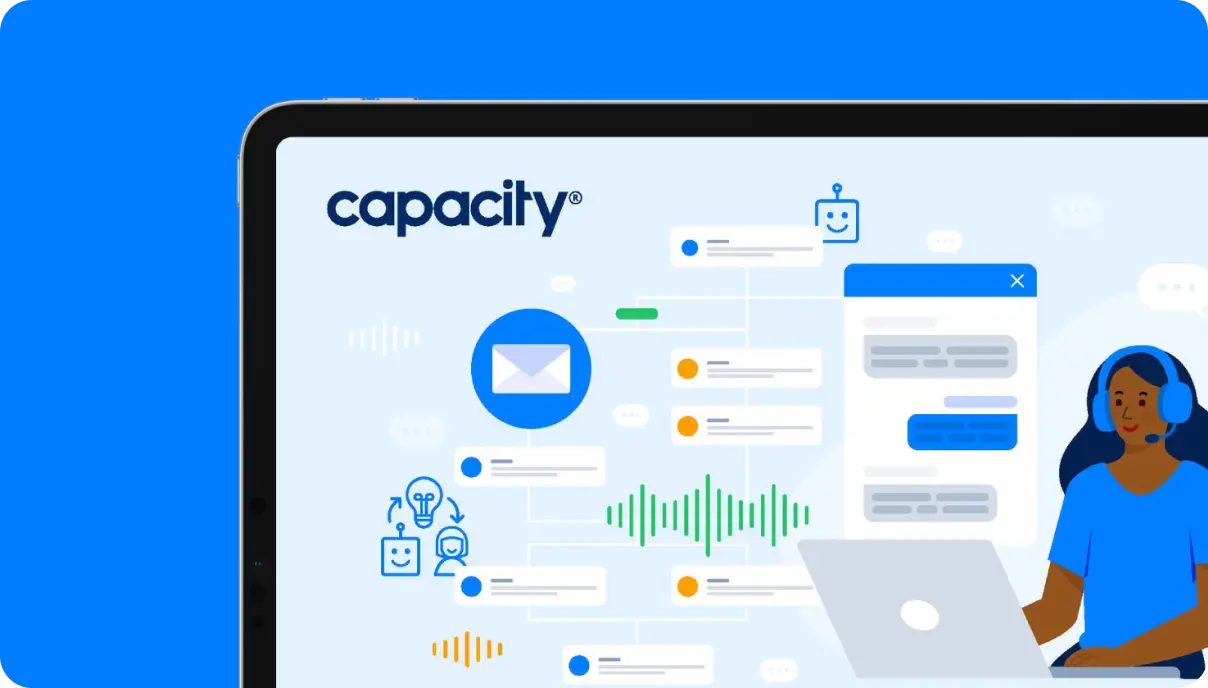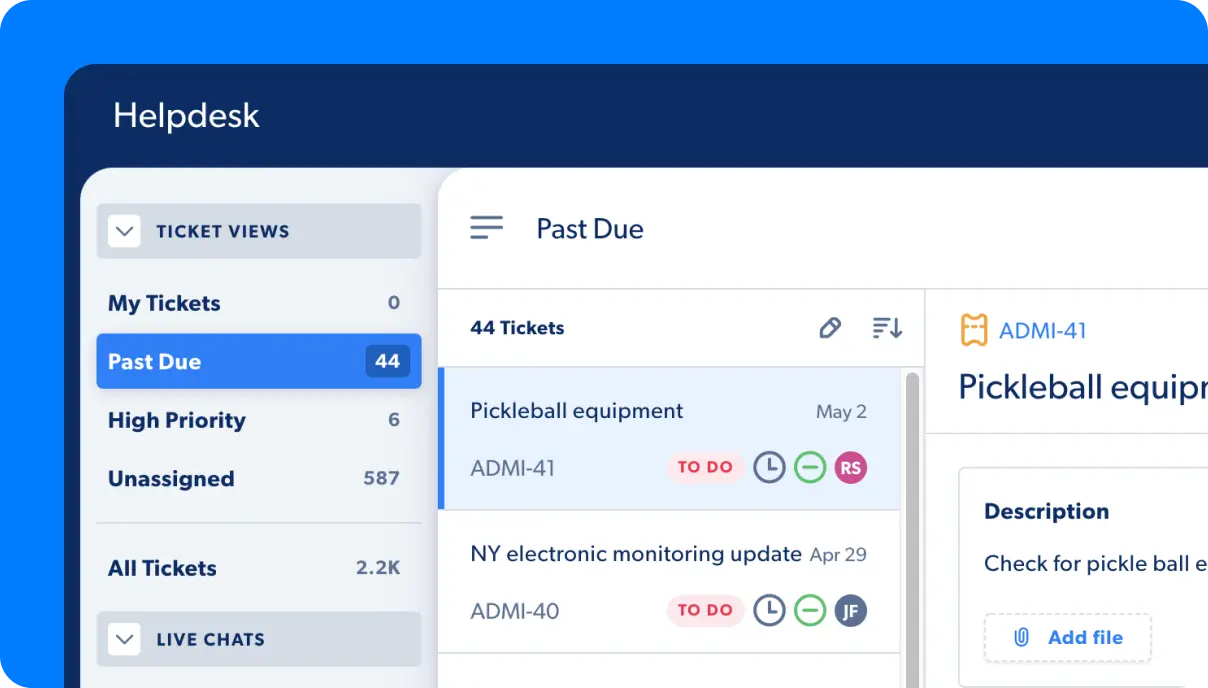Businesses today face a customer problem: 1 in 3 will drop a brand after just one bad support experience, and it takes 12 positive experiences to make up for just 1 negative one.
Unfortunately, exceptional customer support is becoming more expensive and overwhelming to provide. How, then, do teams ensure positive outcomes? Especially with higher call volumes, deeper backlogs, and faster employee turnover than ever before?
Introducing: automated ticketing systems.

What is an automated ticketing system?
An automated ticketing system is a helpdesk function that manages customer service inquiries. AI ticketing systems encourage self-service, create “tickets” for nuanced issues, and, if necessary, escalate these incidents to the right person. The best automated ticketing systems will collect information about a case, including customer messages or touchpoints, so support teams can manage every ticket in one accessible platform.
Businesses use automated ticketing software to:
- Boost ticket response and resolution times
- Empower agents
- Generate meaningful customer outcomes
While using technology to solve business problems is nothing new, AI ticketing systems have the potential to transform struggling helpdesks into scalable support hubs.

How do AI ticketing systems impact businesses?
Three core features of an automated ticketing system empower helpdesks to scale and optimize at a lower cost. But how?
AI-Guided Self-Service
Really great ticketing systems rely on self-service first. In fact, over 60% of all customers prefer it. Offering personal support, self-service tools like chatbots resolve Tier 0 and Tier 1 customer issues quickly, without a human ever having to get involved.
Using natural language processing (or NLP) to answer questions in less than 1.6 seconds, intelligent chatbots resolve low-level, common inquiries before they clog a helpdesk backlog or distract an agent.

Automatic Ticket Escalation
Don’t worry, robots aren’t replacing humans. Another purpose of AI ticketing systems is to ensure that nuanced issues requiring human intervention get routed or escalated automatically to the relevant support team. Automatic escalation tools can even archive or close inactive tickets. With a cleaner helpdesk and a smaller backlog, agents have more time to untangle complex problems.

Omnichannel Messaging & Knowledge
The best part? These systems collect every detail about a case in one accessible hub. Conversations that shifted from email to phone, purchase history, contact information—it’s all on the ticket for agents to reference. Asynchronous messaging and central knowledge access create consistent support experiences for both agents and customers.
So, what does all of this mean? Understaffed customer service teams that switch from a traditional helpdesk to automated ticketing software can clear Tier 0 and Tier 1 tickets without having to choose between speed or quality.
After all, 88% of customers say that their purchasing experiences are just as important as the products and services they’re buying, and helpdesks report a demoralizing 19% agent turnover rate this year. So, how can software help?
3 benefits of automated ticketing systems
AI ticketing aims to boost ticket resolution times, empower agents, and generate meaningful customer outcomes, achieving 3 tangible business benefits:
1. Loyal Customers
Prioritizing the consumer at the helpdesk is key to thriving as a business.
A truly intelligent AI ticketing system is designed to generate customer-guided (or self-service) support experiences. Customers receive instant answers and support from self-service, which resolves 90% of common questions. Central knowledge access reduces errors and delays, and automated surveys can gather customer feedback.
Put all of that together, and the ideal automated ticketing system equips helpdesks to provide convenient, prompt, and helpful support—winning your customers’ trust and loyalty.

Get Started with AI
Capacity’s customized AI Assessments can help:
- Identify opportunities for using AI
- Prioritize use cases that fit your goals
- Build an action plan for implementation
2. Talent & Retention
Customer and employee journeys go hand-in-hand. It’s impossible to exceed customer expectations when agents aren’t empowered.
The same features that encourage consumer satisfaction also combat agent burnout.
- Slash overwhelming backlogs: With 90% fewer repetitive questions, agents benefit from more thoughtful, interesting workloads.
- Eliminate mundane tasks: Automatic escalation does all the dirty work so agents can spend more time using their honed talents and skills.
- Reduce mistakes and resolution times: Distracted, stressed employees make mistakes. Focused, empowered agents don’t.

Agent turnover costs businesses upwards of $12k, so encourage helpdesk teams to work smarter, not harder. When you focus on providing opportunities to develop skills and time to spend on productive tasks, you get focused agents who are far more invested in supporting customers.
3. Scalable Helpdesk Support
The last benefit, but certainly not the least, is a little breathing room.
It’s easier to come by than you think: self-service decreased call volumes for two-thirds of surveyed helpdesks. Higher resolution times and better task allocation cut the hourly cost of support. As a result, businesses can redesign their helpdesks to achieve optimal performance and growth.

Ticketing software also makes it easier to measure efficiency and identify areas of improvement, allowing businesses to focus on enhancing their customer service strategy.
Investing just a little in upgrading your helpdesk with AI ticketing and your entire customer support funnel will see positive results. High-performing customer service teams are 3x more likely than underperformers to rely on AI and automation. Be one of them, and give your helpdesk the ultimate power to scale.
3 Steps to Implement Automated Ticketing Software

Of course, you can’t just snap your fingers, install some software, and call it a day. Leaders must navigate complicated tech stacks and company-wide SLA policies to implement a solution that truly transforms a helpdesk.
To build an automated helpdesk that your business can rely on, follow these three steps:
1. Integrate an AI Ticketing System
First, ensure your AI ticketing system integrates with all your existing support channels, databases, and additional software. These include support inboxes, social media accounts, payment or application portals, and CRMs.
Integrating your tech stack with your automated ticketing system gives you better context on customer issues and company operations, quickening resolution times.
2. Configure a Ticketing Solution
Next, work with administrators and agents to create useful, efficient workflows and automations. Define specific SLAs, such as response times within the system, and configure ticket escalations to trigger based on request type, priority, and customer intent.
Agent reminders, standardized templates, and separate escalation processes for IT issues or returns are also possible with automated ticketing software.
Configure your ticketing solution with an ideal standard of support in mind, so your helpdesk drives a customer-centric support strategy.
3. Set a Target for Success
Lastly, define excellence for your business: what does success look like for your team? Identify the metrics you want to target, such as the number of tickets resolved daily. Automated ticketing systems deploy in-depth analytics dashboards, so you can measure performance, adapt SLA or workflow configurations for better success, and continue to improve.
AI ticketing is essential for any helpdesk—not only for its features but also for the many ways those features can be customized for the most efficient and useful application.
What tasks can you simplify with an automated ticketing system?

Automated helpdesk solutions are smarter than you think. In fact, by 2030, activities that amount to 30% of our work time spent could be automated.
Using AI-guided self-service, automatic escalation, and omnichannel consistency, automated ticketing systems can:
- Respond instantly to low-level inquiries
- Resolve common issues independently
- Create tickets from a chatbot, email, or website inquiries
- Sort, classify, and assign tickets
- Prioritize tickets based on the level of urgency
- Track SLA policy compliance
- Report metric performance
- Gather customer feedback
By offloading mundane questions and tasks, businesses slash the hourly cost and labor of running their helpdesk. AI ticketing systems also offer data and analytics functions for continued growth and improvement.
Top 5 Automated Ticketing Systems
The best AI ticketing system enhances a support strategy that inspires a loyal customer base, empowers agents, and restructures the helpdesk to scale faster and cheaper.
But what is the best solution to choose for your business?
Capacity
An all-in-one support automation platform, Capacity is the only automated ticketing software of its kind to actually kill tickets before they are even created.
Self-service is the future of helpdesks, so we designed artificial intelligence tools that are constantly learning. With a 90% deflection rate, our chatbot grows more robust, accurate, and knowledgeable the more it’s used. Common questions that used to overload helpdesks now don’t need to be created at all.

And, when tickets do reach your helpdesk, our software seamlessly manages them while the built-in analytics dashboard tracks performance. Integrate with your entire tech stack for the most consistent, accessible experience.
Capacity does all this while guaranteeing the privacy of both you and your customers—we are the only SOC 2, GDPR, and CCPA-compliant support automation platform.

Get Started with AI
Capacity’s customized AI Assessments can help:
- Identify opportunities for using AI
- Prioritize use cases that fit your goals
- Build an action plan for implementation
Helpshift
Helpshift brings customer support to the smart device. Their ticketing integrates with mobile apps, so customers get support in-app without clicking out. Helpshift works well for digital businesses whose support conversations mainly occur on mobile. However, Helpshift can be tough to set up, and the lack of desktop support makes it a non-starter for most enterprise-level businesses.
Pricing starts at $150 per month, which includes 250 ticket slots.
LiveAgent
LiveAgent’s mission is in the name: live chat software that brings agents and customers together. Their software has real-time typing, an agent availability view, and a universal inbox. However, users report that integrating with their business systems can be challenging.
Pricing for an enterprise-level plan is $49/per agent/per month for the ticketing suite.
Freshdesk
Freshdesk has been around for a long time. Its solution emphasizes a team inbox with shared ticket ownership, filters, and merging capabilities and encourages cross-departmental ticket resolution. The limitations of Freshdesk arise when ticket volumes are high, creating team confusion and leading to a bloated ticket queue.
For enterprise features, pricing for all the bells and whistles is around $79/per agent/month.
Zendesk
Zendesk connects channels of a support funnel into one platform, which in theory, makes it easier to track tickets and issues no matter where a conversation has occurred: text, phone, email, etc. Users have cited a few drawbacks similar to Freshdesk, including the lack of “instructions on how to manage the automation, capability, and integration with third parties, such as chat or bots.”
Pricing starts at $49 per user per month.
Transform your helpdesk.
The best-automated ticketing systems are smart, seamless, and scalable. Upgrade and expand your customer support with an AI ticketing system that helps your team do their best work.

Get Started with AI
Capacity’s customized AI Assessments can help:
- Identify opportunities for using AI
- Prioritize use cases that fit your goals
- Build an action plan for implementation













































